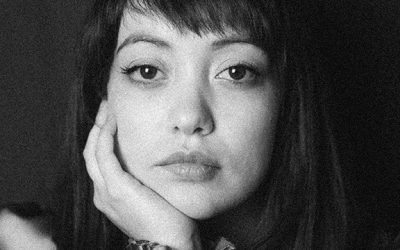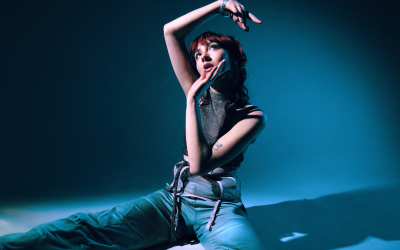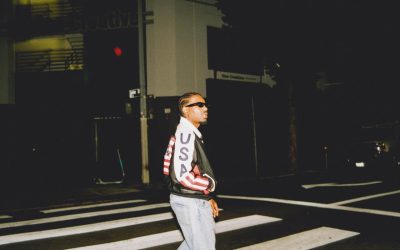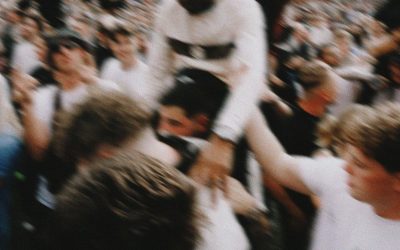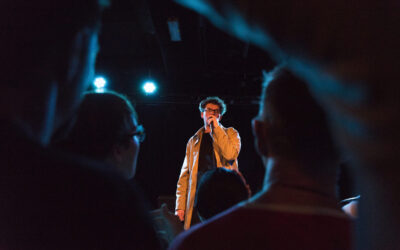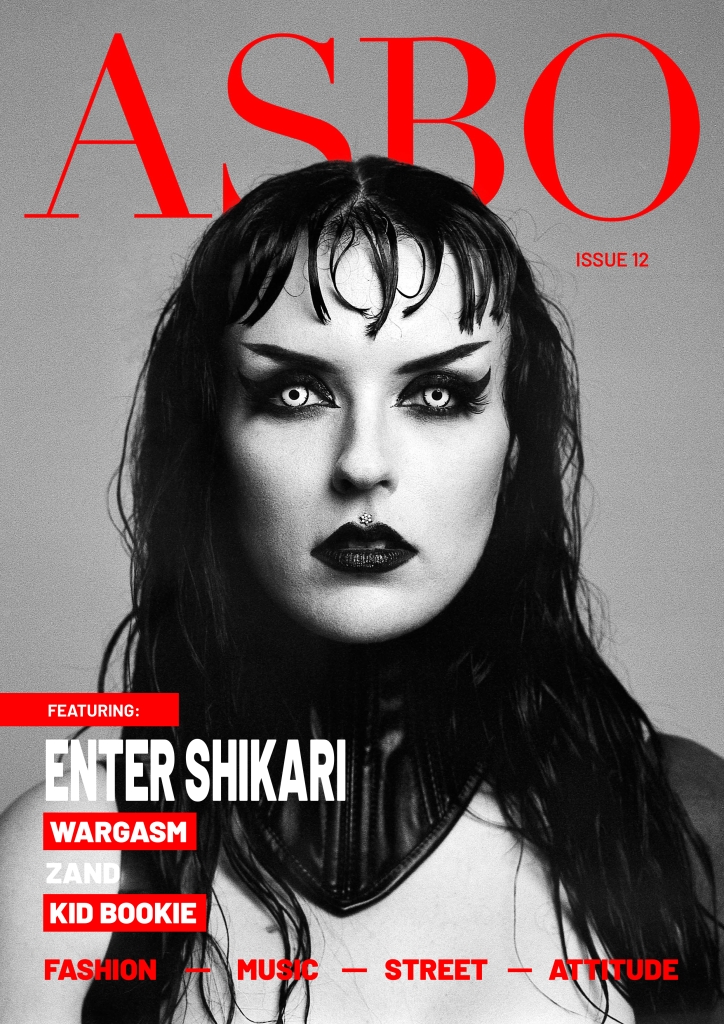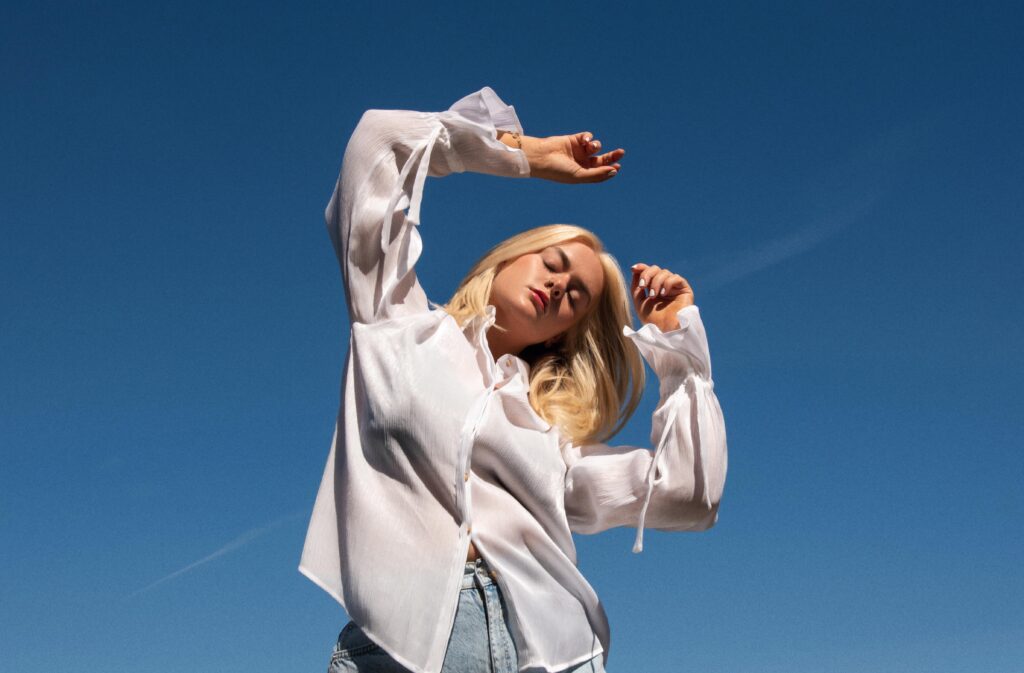
Originating from Blackburn, Lancashire, singer-songwriter, and producer Grace Davies would describe herself as a lively, funny, and down to earth gal who “tells is how it is”. Being runner-up on the fourteenth series of The X Factor in 2017, Davies has recently gone independent after being signed to Simon Cowell’s now collapsed record label Syco for about three years. Nevertheless, she is clearly on the rise and has a loyal fanbase supporting her every move. When I say loyal fanbase, I mean that she even has followers gifting her those cute Dr Martens that she wished for on Twitter. I know right? I can’t even get my own mum to buy me a pair of socks for Christmas.
Describing her musical style as ‘sad girl pop’, Grace Davies is a real crier who lets emotions guide her art, and she totally invites her army of criers to let it all out; in the shower, during a commute, or whenever you just need a good ol’ sob to get you through the tough times. Having recently released the EP i wonder if you wonder, Davies offers some raw and candid lyrics along with some delicate vocals that take us through a whole relationship song by song. Her crystal-clear aim as an artist is to share insecurities with the world in hope that she’ll be able to make people who think just like her to feel less alone. The incredibly talented and hard-working singer-songwriter sits with ASBO to discuss topics including unfair representation and treatment in the music industry, her struggles of dealing with fame after being on a TV show, and how ugly feet can totally put her off the hottest guy.
How did you discover your love for music?
Grace: I realised I could sing at 11 years old, and I was doing musicals in school. I’ve also been a dancer since I was three and I was an actress since I was nine. So, when singing came along, I was like “I’m gonna do musical theatre, I’m gonna be on the West End”. I was so into all the musicals, I just wanted to be in Wicked, Oliver Twist, and all that, and I did that after school all up until I was about 14, which is when Adele released 21. When that album came out, I was like, “hmm, actually, that’s what I want for myself. I want an album like that, I want her career. I just I want to do music.” So, I quit everything else, and I taught myself piano when I was 16. Because, especially where I come from, it’s such a tiny village, there’s no music producers, there’s no songwriters, I had no contacts, so I thought, the only way I could put myself into the industry was if I wrote my music, and I couldn’t just write my music if I didn’t play an instrument. So, I taught myself piano and then started writing. I then self-released, I just did it in a local recording studio, I’d record songs that I’d written, and I got people that played instruments, brought them in and put an EP together. Then that propelled me up the BBC Music Introducing tree, just by uploading my songs and getting played on the local BBC Radio, and that was my kickstart into the music industry.
How would you describe your relationship with music?
Grace: To be honest, I think sometimes it feels like it’s all I’ve got and all that I’ve ever known. I listen to music constantly. So, it’s not just my job, it’s also my favourite hobby and it’s all that I can do. I went to grammar school, and I was quite academic, but as soon as I realised that I could sing I dropped all of that and I just concentrated in singing. So, I never really gave myself a plan B.
Although I love music, it can be all-consuming too. Because when your favourite hobby does become your job, you sometimes think to yourself ‘what do I do now to take myself away from my job?’. I used to come home from writing sessions, I’d walk into my flat and see my piano and I’d be like, “just leave for a minute, please get out!”. But at the same time, music is the only thing I love in the world, and I think that’s why I can carry on doing it independently even whilst struggling financially. I think if I didn’t love it, then I would have given it up a long time ago.
Gabriela: I feel like that’s an interesting answer, because I’ve heard this before from other artists who have told me that because they started making music as a hobby and that ended up turning into a career, sometimes it would feel overwhelming, so they would have a hobby on the side to get rid of that feeling. Do you have hobbies that you do on the side?
Grace: I used to struggle with this actually and would constantly tell people that I needed a hobby. Then, I realised that I’m massively into interior design, and if I didn’t do music, that is what I would be doing. So, just going furniture shopping, or having a little wander around Oliver Bonas, or Anthropologie. These are my favourite things I love, and I do this for a lot of my friends as well. I give their rooms a makeover, buy loads of things for them and paint for them. I’m really into that sort of stuff.
So, you’re not just a good voice, you’re so much more, wow! You were runner up on the 14th series of The X Factor, what made you go and perform your original music on the show?
Grace: So, I’d been approached for the show four years in a row and that’s because, when I was 16, I auditioned for XFactor, Britain’s Got Talent, and The Voice all in one year, but I didn’t get past the first producer round. It was quite disheartening. So, I thought, “I’m not really going to do those shows, I’m just going to be an artist and do my own thing and release music”. I had released an EP independently and didn’t really know how to get there. Meanwhile, The X Factor kept coming back to me and asking for me to audition, but I told them that I don’t sing covers, I release my own stuff and I know what kind of artist I want to be.
It was the fourth year, in 2017, when they finally said that I could sing my own songs if I wanted to, and I then thought, okay, now that’s a game changer because no matter how far I get on the show, even if got kicked out in the first round, well, at least I know that I went on that show being the artist that I wanted to be and not because of my song choice. So yeah, it was crucial for me to go on and show and introduce my song and myself as I am. If you like it, you like it, and if you don’t then that’s also fine, I’ll go and do something else. I really didn’t expect to be able to do it in every round, I thought maybe they’d just let me do it in the first few and then make me sing other songs and other genres, but they were really accommodating.
Why do you feel the need to perform your own music? Or why don’t you want to do covers? Was there a specific reason?
Grace: I think it’s so normal for artists to write their own music and sing their own songs, and in the real world of music people aren’t singing covers, they are singing their own songs. I think that’s significant, as it defines you as an artist to have your own music. So, when you look at a show like X Factor where they have swing week or rock week, or whatever week, it’s like, well, who are you? Are you a rock star? Are you a pop star? Or do you play the piano? sing ballads? What do you do? and I think, for me, I came on the show clearly stating what I do and how I do it. I can take a cover, but I’m gonna sing it in my way, and I just felt like I was putting my stamp and saying, “this is what I’m doing.”
A lot of your songs tend to include the themes of heartbreak and breakups within them. So, I was wondering how many heartbreaks (roughly) would you say you’ve experienced and is there a particular one that you feel like has really inspired your song writing?
Grace: Yeah, I mean, I’ve only ever had one relationship, so most of my songs are about him, and I still write about it now when it’s been three years. But it’s just because I find it hard to write about things that haven’t happened to me. So, if I’m not honest, then it’s not normally a good song, and how many heartbreaks have I had? Probably like, 20. If I’m honest, I fall in love so easily, even with people that I’ve just met that night. They could break the heart easily. I get attached very quickly, but I think, major heartbreaks, I’ve probably had about three, and that’s who most of my songs are about.
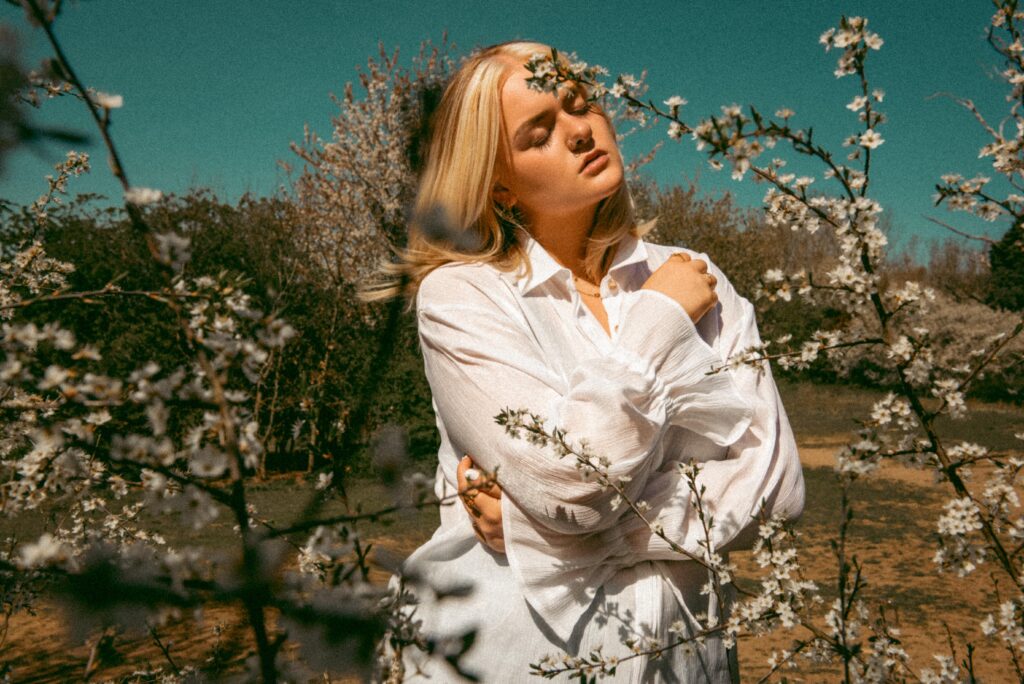
You’ve recently released ‘i wonder if you wonder’, so tell us about this piece of work. By the way, congratulations on that! It’s amazing. What was the creative process behind this EP?
Grace: Thank you! So, I’ve been working on, i wonder if you wonder since 2018. I wrote a song called toothbrush during 2018, and straight away I picked out the line ‘I wonder if you wonder’ because I loved it, and I said to my previous label, “that’s going to be my album title”, because I was looking towards doing an album at the time. That was kind of the first song that I wanted to have to kickstart my collection. So, when I became independent, I thought “now I can put that song out, I’m going to make it into an EP and I’m going to stick with that title”. So, I took toothbrush, testosterone, which was also written in 2018, and roots, which was my X Factor audition song that I also sang in the finals and never got round to release while I was with my label, it’s also a song that my fans have been asking for four years. Then, used to you was a song that I wrote about my departure from Syco (my label), and while I was writing that I was thinking about how I could tie that into the EP and bring it full circle, and that’s when I then decided to use the lyric ‘I wonder if you wonder’ in that song as well. I met a boy online, I wrote during lockdown last year. So, I kind of just had to pick my favourite songs really, and then make sense of it after, and I think when I put them in a certain order, they made sense of telling the story of a relationship’s cycle; from wanting to find someone, to then falling in love, them cheating on you, and then you having to get over them and going back to the beginning.
Being in the music industry, do you feel like there is fair representation and treatment with everyone who’s involved? What would you say from working in it and being inside of it?
Grace: No. I really think songwriters are the least cared about people in the whole of the music industry, and yet, they are probably the most important part. They make the music, and they get paid in buttons. They get treated very unfairly by labels and there’s enough movements out there to try and start something, but no one seems to be getting on board. No labels seem to care. So, I think it’s something that we’re going to see a shift in over the next few years of the way that labels get a lot of money and don’t pay songwriters to be in that room and write that song that day.
I think artists are also very disposable to labels. If something in the slightest goes wrong, they don’t always persist. It’s just very easy to drop them and move on to the next person. So, I think there’s a lot of unfair treatment within the music industry and I think that’s never going to necessarily change, but I think we will see a shift in the way that songwriters are treated. There are important conversations that are going on right now, and are happening online, and within that kind of community. So, it’s exciting to see what’s going to happen.
What are your views on the lack of women in the music industry? Do you have a particular opinion on this?
Grace: It’s endless thoughts, I think. Because you only have to look at Lewis Capaldi’s album, Adele’s albums, there is not one female songwriter or producer credited on either of those albums, and they are two of the biggest albums in the past five years. I think there’s just not enough representation. I use female producers, I use female songwriters and I’ve done all female writing camps, where it has been all-female mixing engineers, producers, and writers. I’m very much for it. I think it’s just getting that across to labels as well, because I experienced something when I was signed, where I got put in with an amazing artist, writer and producer called Francis, who is actually one of my best friends, and my label basically said, “oh, we should get a producer in the room as well, because you’ll need one”, and I was like “Francis can do it, she’s the producer. She has produced for other people, is this because she’s female?”, so I really pushed. She’s since produced some of my songs, and, you know, it’s just making sure that people do push for that, and artists are being aware of it. Because it’s disregarded far too quickly and not far off.
You’re increasingly gaining a lot of popularity, right? Your number of streams is growing daily, and you also have 130k followers on Instagram. Does fame ever intimidate you, or make you feel like it could potentially alter you or your morals?
Grace: I think I have changed as a person since I went on X Factor, but probably for the better. I think it humbled me and made me realise who and what matters and that everything is smoke and mirrors, and not as it seems. I think, I was a very, very broken, and not a very happy person after being on a TV show. It’s taken me a long time to recover from that. I wouldn’t say that it’s affected my morals, and I think it’s probably just made me more grateful for what I have. I’m also aware that things don’t always last, and I knew that when I got signed, I was like, “this isn’t going to last forever, so I take every moment as it comes and enjoy it.” I’ve always really been like that since I went on the show. When I did an arena tour, I thought to myself “you might never get to perform to 20,000 people in your life again, so enjoy it, don’t take it for granted”, and I think like that about everything now.
What does the perfect Friday night look like for Grace Davies?
Grace: Perfect Friday night? Hmm, a Chinese takeaway, Gogglebox on the telly, my friends, snacks, and just chill. I never went to Uni, I never went through a partying stage. I’m just like, get a takeaway, put the telly on and I’m happy!
Do you have any pet pet peeves?
Grace: Feet, I don’t like feet. Just generally.
Gabriela: What’s wrong with feet? What don’t you like about feet?
Grace: They’re just a bit creepy (laughs). Jamie Dornan for example. He’s the lead in 50 Shades of Grey, right? and he did this programme called The Fall. He’s honestly my celebrity crush, I’m in love with him. He’s so hot. But they showed his feet in The Fall, and they were horrendous, and it’s given me the ick, like, I can’t! (laughs).
Gabriela: No way! So, you feel like ugly feet could put you off a guy?
Grace: Yeah, it’s a big thing.
Gabriela: Jeez okay, no feet for Grace.
What’s one piece of advice you’d give to those who listen to you or follow your work?
Piece of advice for people who follow me, I guess that it does get better. When I write sad songs, I’m in that sad place, but when I release them, I’ve more than likely moved on from that part of my life, and I think if people can listen to a sad song and relate to it, just know that it doesn’t always feel like that.
Okay, and my last question is… are there any upcoming talent you love or any undiscovered musicians that you feel ASBO should have their eye on?
Yes, Dan Aura. He is actually one of my close friends, but I just think he is the next big thing, I really, really do. He’s a queer artist. He has a Troye Sivan, Conan Gray kind of sound, really, cool pop music. He’s just amazing and has just released an EP called Straight Boys and I’m obsessed. So, I would always recommend people to go and listen to him. He’s very, very unknown, completely brand new, so, yeah, definitely.
Listen / stream EP here.
“Talk about taking our breath away, Grace Davies has us feeling it all.” – WONDERLAND
“A remarkable talent.” – THE SUNDAY TIMES
“[Grace Davies’] soulful pop vocals bring her poetic lyrics to life.” – MTV UK
“Pop perfection.” – HEATWORLD
Grace Davies Online – INSTAGRAM | TWITTER | FACEBOOK | YOUTUBE | TIKTOK
Words: Gabriela Jimenez
Images: Press shots




